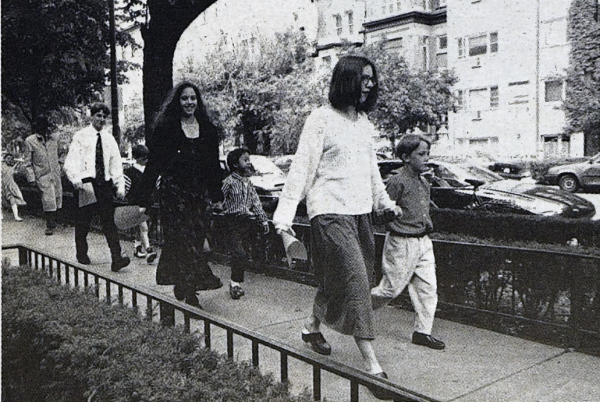The Impact of Cook County Indoor Dining Restrictions
In response to Chicago’s rising number of coronavirus cases, Illinois Governor J.B. Pritzker issued a shutdown of indoor dining at bars and restaurants in Cook County that went into effect on October 30. Limiting congregations indoors will hopefully reduce the spread of COVID-19, but Gov. Pritzker’s order will have economic and environmental repercussions for not only the Latin community but the city at large.
“At least 50 restaurants in Chicago have shuttered permanently due to financial losses from COVID-19,” Upper School economics teacher Tim Kendrick noted. Although Gov. Pritzker assured restaurants that they’ll receive support through $630 million in grants, Mr. Kendrick doesn’t think the plan will sustain Illinois’ economy. “$33 billion dollars of the Illinois economy could be linked to dining out in a year,” he said. “So $630 million in grants for $33 billion in spending––the plan might cover 1.9%. Is that enough? It doesn’t seem so.”
“Another factor is the multiplier effect,” Mr. Kendrick said. “If a restaurant closes, they don’t earn money, and their laid off workers are then spending less in the economy, so the domino effect continues.”
In addition to the limited budget of some consumers, with the increasingly cold weather, fewer people will want to stay outside for extended periods of time, so they’ll spend less time outdoors, reducing how much money restaurants will make per customer. Restaurant owner and Latin parent Kimberly Mafrici explained, “Our cuisine is fine dining and not conducive to eating when you are cold. People will order less, eat quicker, not buy wine, and spend less, but it is still the same amount of work for our staff.”
While Mrs. Mafrici’s restaurant, Pelago Ristorante, can seat the same number of customers outside as inside, Gov. Pritzker’s restrictions force many restaurants to run on a lower capacity and may result in the foreclosures of more restaurants or layoffs of staff. When asked about the projected unemployment rate, Mr. Kendrick said, “I have no doubt it will go up due to the new round of dining restrictions.”
“It feels like restaurants are unfairly being penalized,” Mrs. Mafrici said. While stores, gyms, and schools stay open, the government targeted only the restaurant industry for the spread of coronavirus. “When everything was shut down, it seemed like it would prevent the spread,” she said, “but if only restaurants are shut down, I don’t think it’s helping. People are finding other ways to get together, and it is especially unfair for restaurants who do not have any outdoor capability.”
Dr. Jyoti Patel, a Latin parent and thoracic oncologist, noted, “Our COVID-19 census doubled in two weeks in Northwestern hospital, and that’s a huge strain on resources.” As a member of Latin’s COVID-19 advisory board, Dr. Patel said she remains confident in the safety of Latin’s coronavirus protocol compared to that of restaurants. “Our Latin experience has been safe,” she said. “We know that when you are masked, the risk of transmission is quite low, and that’s the fundamental issue with restaurants: you’re taking your mask off and eating together.”
Keely Moll, a junior and head of Latin’s Green Group, said she worries about the environmental response to the shutdown on indoor seating. “The uptick in gas heaters is very bad for the environment,” Keely said, “and people will take advantage of ordering in as an alternative which will increase the usage and production of plastic utensils and boxes.”
“There are also lots of restaurants who use styrofoam––which never decomposes––because it’s cheaper,” added senior Maya Gray, another Green Group leader, “meaning we’re putting more of that into the environment since restaurants are being forced to close.” Many businesses can’t afford environmentally friendly packaging, especially when running at a limited capacity, and without consumers eating inside restaurants with reusable silverware, plastic and styrofoam usage will likely increase.
The close contact and removal of personal protective equipment necessary to the experience of eating out at a restaurant unfortunately promotes the spread of coronavirus, but will people continue to socialize without masks in other locations now that they can’t go to bars and restaurants indoors? “If people are properly spaced and wearing masks, and the restaurant is following all the guidelines, I think that is safer than people getting together at unregulated house parties,” Mrs. Mafrici said. “It is destroying an industry that has already been severely damaged.”

Marin Creamer ('22) can’t wait to serve her first year as an Editor-In-Chief for The Forum. Writing and editing for the publication has been...





















































Tempone • Nov 20, 2020 at 6:01 pm
This is a fantastic article, Marin. Really well sourced, structured, and written.